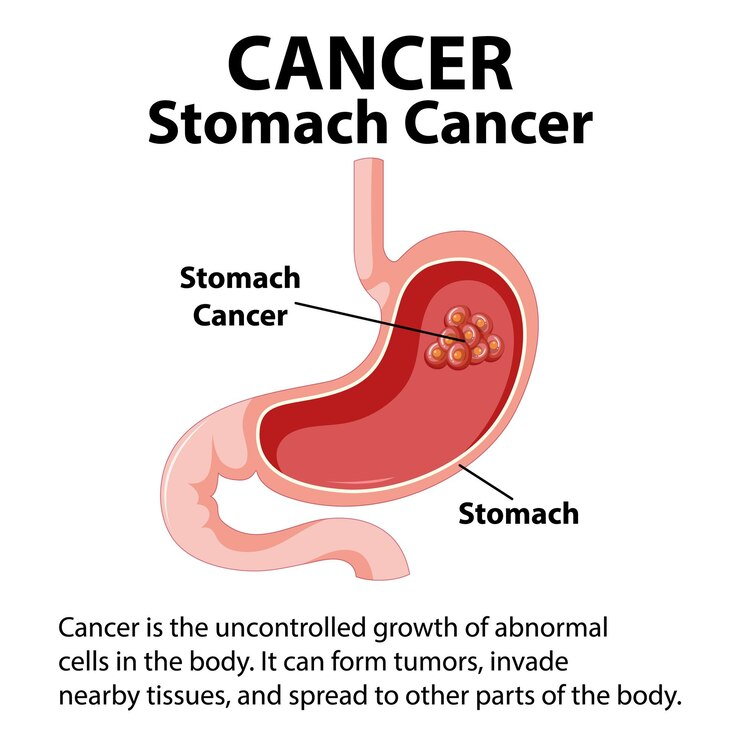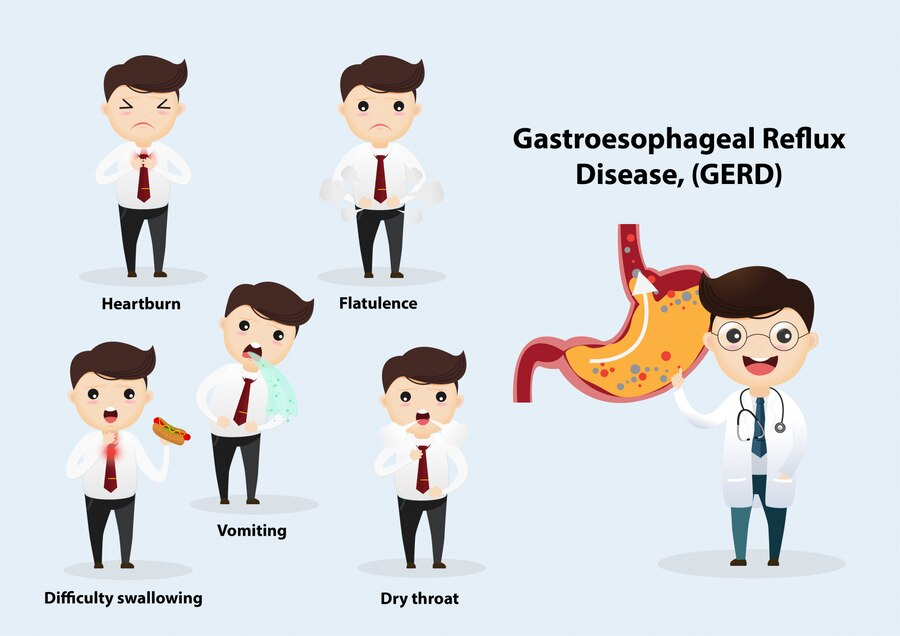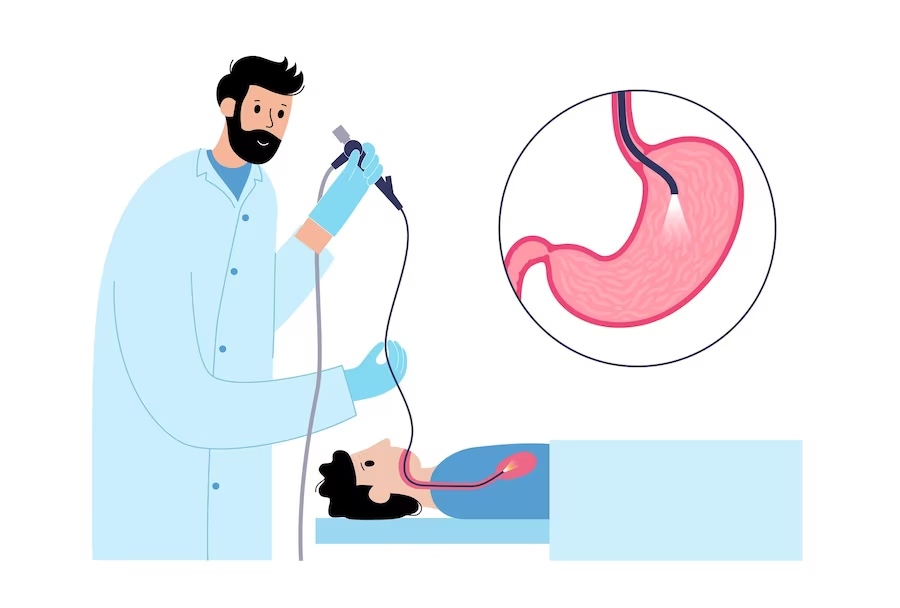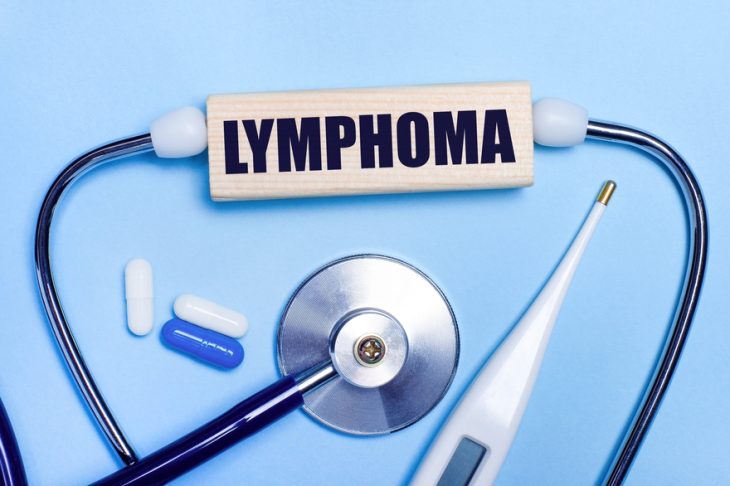
What is Stomach Cancer? Know More About It.
Gastric cancer, or stomach cancer, begins in the stomach. Stomach cancer is still one of the most common cancers globally despite a notable decline in incidence over the last 20 years. The most prevalent kind, adenocarcinoma, originates from the stomach’s inner lining. Other forms, though comparatively uncommon, originate from the middle or outer regions of the stomach.
Stomach cancer symptoms:
Early-stage stomach cancer may not exhibit any symptoms. Some common symptoms of stomach cancer include fatigue, mild abdominal pain, and early satiety (feeling full).
- Unexplained weight loss
- Stomach pain
- Difficulty swallowing (dysphagia)
- Prolonged indigestion
- Loss of appetite
- Dark stools
- Feeling full after eating small amounts
- Feeling sick
- Weakness due to anaemia
When should I see a doctor?
Schedule an appointment with your general practitioner if you experience unusual or persistent symptoms; they may recommend diagnostic tests. If a tumour is detected, you will be referred to a gastroenterologist and oncologist to provide appropriate treatment options for stomach cancer.
Stomach cancer causes:
Stomach cancer is a malignant disease that arises from the cells in the lining of the stomach. The exact cause of these changes in the cells is still unknown. Cancer originates from a genetic mutation in the DNA structure of cells, which can disrupt the normal process of cell division, leading to uncontrolled growth. As a result, an abnormal mass or lump of tissue, known as a tumour, forms in the stomach.
Stomach cancer risk factors:
- Stomach acid backs up into the oesophagus, called gastroesophageal reflux disease (GERD).
- Food high in salty and smoked foods
- Food that lacks vegetables and fruits
- Stomach infection due to Helicobacter pylori
- Stomach swelling and irritation known as gastritis
- Smoking
- Noncancerous stomach polyps
- Family history
- Have a family history of genetic syndromes

Gastroesophageal Reflux Disease
Stomach cancer prevention:
Stomach cancer can sometimes not be avoided, but there are several things you can do to lower your risk and encourage a healthier lifestyle.
- H. pylori Infection Management
- Dietary Changes
- Limit Processed and Red Meat
- Avoid excess consumption of junk foods
- Eat a Balanced Diet
- Reduce Salt Intake
- Stay away from tobacco
- Limit alcohol intake
- Maintain a Healthy Weight
- Exercise regularly
- Stomach cancer screening and early detection
- Consult a doctor if family history persists
- Prefer eating fresh foods
- Avoid consuming foods containing carcinogenic compounds

Stomach cancer diagnosis:
To diagnose stomach cancer, your healthcare provider will take your medical history, conduct a physical exam, and order tests such as imaging, blood tests, or a biopsy.
Here is an overview of the steps involved in diagnosing stomach cancer:
- Blood Tests: Blood tests can be performed to evaluate overall health and organ functions and check for abnormalities in blood count.
- Imaging Tests:
- Upper Endoscopy (Gastroscopy): To view the stomach lining, an endoscope—a thin, flexible tube with a camera on the end—is placed through your mouth and into your stomach.
- Barium Swallow or Upper GI Series: You swallow a barium contrast solution, which is then visualised on X-rays to highlight abnormalities in the upper digestive tract.
- Endoscopic Ultrasound (EUS): This combines endoscopy with ultrasound to provide detailed images of the stomach lining and nearby structures.
- Radiologic tests such as CT scan, barium swallow, MRI scan, and PET scan can help detect cancer and related abnormalities. These tests provide detailed information about the tumour and are essential in diagnosing and treating cancer.
- Biopsy: A biopsy is the definitive way to confirm the presence of cancer. During an endoscopy or EUS, a small tissue sample (biopsy) is taken from suspicious areas in the stomach lining.
- Staging: Staging is crucial for stomach cancer treatment decisions and prognosis. It includes imaging tests to evaluate the extent of the disease beyond the stomach.

Endoscopy
Stomach cancer treatment:
Treatment is based on your health, treatment preferences, and the extent to which your cancer has spread.
Surgery:
- Upper endoscopy: In the early stages, the cancer can be removed from your stomach through an upper endoscopy if it’s limited to the superficial layers.
- Gastrectomy: Once the cancer has spread beyond the outer layers of the stomach, surgery is necessary to remove part or all of the stomach. Subtotal gastrectomy eliminates the section of the stomach affected by cancer, while total gastrectomy removes the whole stomach.
Other treatments:
- Radiation therapy: It also known as radiotherapy, is a common cancer treatment that uses high radiation doses to kill cancer or malignant cells and reduce the size of tumours.
- Chemotherapy: Drugs are administered intravenously (via a vein) or orally as part of this treatment to either kill or prevent cancer cells from expanding. Radiation therapy and chemotherapy can be used separately or together.
- Target therapy: Target therapy targets the genes and proteins associated with that particular cancer, stopping the growth and spread of cancer cells while causing minimal damage to healthy, normal cells. The most typical adverse effects include fatigue, diarrhoea, and rash.
- Immunotherapy: The body’s immune system is utilised to recognise and fight cancer cells, a form of cancer treatment. Immunotherapy boosts your immune system’s capacity to combat cancer cells, utilising the body’s natural defences against the disease.
- Palliative care: Palliative care for stomach cancer plays a vital role in improving the quality of life for individuals diagnosed with this disease, mainly when the cancer is in advanced stages or not responding to curative treatment. Palliative care for stomach cancer focuses on providing holistic support and symptom management to alleviate suffering and improve the patient’s overall well-being.

Stomach cancer treatment at Omega Hospital:
Omega Hospitals in India is a renowned healthcare institution specialising in exceptional cancer care services. The hospital has highly skilled oncologists who provide multidisciplinary treatment for stomach cancer, ensuring comprehensive and effective patient treatment and promoting a speedy recovery.
Looking for high-quality and affordable medical treatment?
Choose Omega Hospitals for the best and most affordable cancer treatment
With a team of skilled medical professionals and advanced equipment, Omega Hospitals is dedicated to providing the best possible care to patients.


